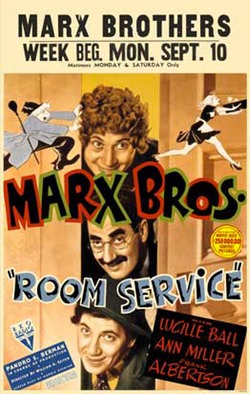
Kafka At The Circus – Woody Allen & Shadows And Fog
Sometimes people prefer a meal of starters to the supposed heights of fine dining. Here we give you all the appetisers you can gorge upon. This running column picks a celebrated auteur and dissects the lesser known or stranger items on their oeuvre.
At this point, Woody Allen is rapidly approaching 50 completed films. As many people have observed, maybe if he had made half that amount in the same span of time, he’d be sitting on a higher batting average. With an oeuvre that vast, it’s not hard to pick out a lesser known film (and in cases such as Cassandra’s Dream, they’re lesser known for a good reason – that being said, great Tom Wilkinson performance), but to find an interesting one, or even a great one – there’s the challenge.



